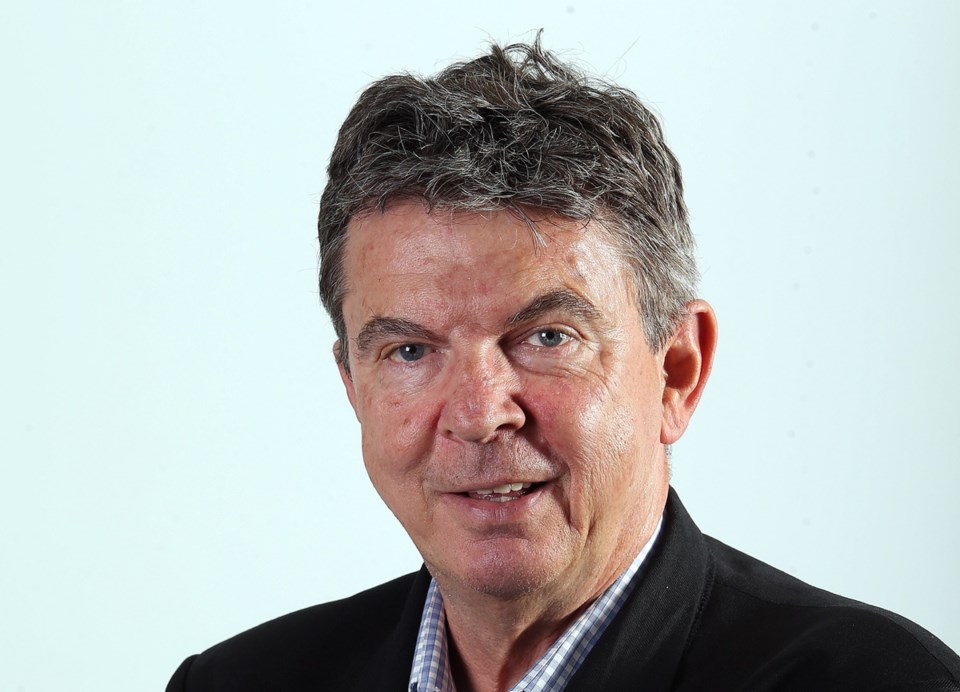 Friday’s job numbers confirm the impression yet again. B.C., by and large, is booming.
Friday’s job numbers confirm the impression yet again. B.C., by and large, is booming.
The political question is what the B.C. Liberals are going to do with that prosperity to capitalize on the situation, with the election clock ticking.
Statistics Canada’s monthly employment numbers are always volatile and can swing wildly in any direction. The July report notes a startling 31,000-job drop nationally, particularly in Ontario and Alberta. But employment rose by 12,000 in B.C., continuing a trend that has lasted since the spring of 2015. B.C. has the lowest unemployment in the country and has posted 85,000 new jobs in the past 12 months, the fastest growth rate in Canada.
Premier Christy Clark isn’t shy about comparing Liberal B.C. to NDP Alberta every time it works to her advantage. The latest numbers are another opportunity. Unemployment there is now 8.6 per cent compared with 5.6 per cent in B.C.
The glowing numbers are posted despite the lack of progress on the liquefied natural gas push. A few short years ago, it was supposed to be the fundamental driver of the biggest sustained boom in provincial history. Now it’s virtually dormant. The Liberals have put $100 million into the Prosperity Fund they promised would flow from LNG. But none of the initial deposit is from LNG. It’s from a budget surplus derived from all over the economy.
The strong job numbers also fly in the face of a Metro Vancouver housing market that’s so hot it’s dissuading people from moving there to take jobs. Vancouver’s real estate has created thousands of new jobs, but it’s also costing some.
The open question now is what the sudden crackdown on foreign buyers that started Tuesday will do to the economy. The 15 per cent tax on foreign buyers of residential property in Metro Vancouver was designed to hit the sweet spot, where it dampens demand and cools the market enough to give (B.C.) buyers a break.
But if it misses that spot, it could have no effect, or suppress prices so much current owners start losing equity. A significant slowdown would show up in employment numbers. A 2015 government briefing paper that argued against such a tax, noted here Thursday, suggested it could cost 3,800 construction and real estate jobs.
In the meantime, the government has a healthy surplus and an obvious inclination to make nagging headaches go away in time for next May’s vote. Liberals managed a complete about-face on the housing issue in the space of a few months, and will be continuing that focus in September. The Union of B.C. Municipalities convention in Victoria starting Sept. 26 will likely be a staging ground for more news.
Protecting gender identity in the human-rights code was considered unnecessary by the B.C. Liberals for years, because it was already implicitly covered. But after the issue started to fester, the Liberals reversed and legislated the change in the space of a single day last month.
Medical Services Plan premiums are another issue that’s festered for years. The monthly charge is considered unfair, but it raises $2.5 billion a year and getting rid of it is a complicated prospect. Clark told Vaughn Palmer’s Voice of B.C. last week she is determined to make some changes.
Also on the tax front, Liberals are due to make a move on the carbon tax. It’s unique for being the only tax where raising it could be considered a vote-getter. Liberals are conscious of the perception they’ve lost ground on fighting climate change. A major upgrade of the nine-year-old strategy is in the works and a hike in the carbon tax is a possibility.
If intervening in the real estate market to “put British Columbians first” works for them, look for the same policy when it comes to parks. A campground shortage partly due to mass-booking reservations came to light this summer. Look for steps to fix that problem for next year.
Across the field, in public safety, environmental, social services, natural resources and other sectors, the operative theme from here on in is to ride the wave, avoid unpopular decisions and make problems go away.


